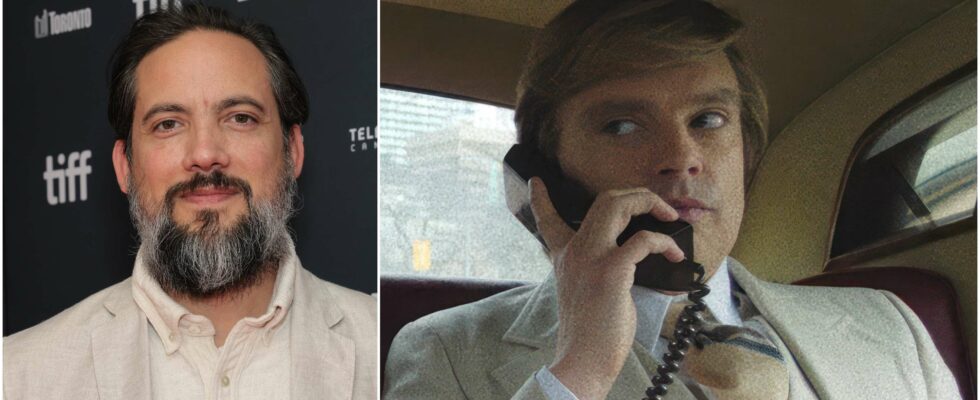Le film *The Apprentice*, réalisé par Ali Abbasi, examine la construction de l’image publique de Donald Trump et les mécanismes de son ascension. Malgré des menaces juridiques de la part de sa campagne, le film a été bien accueilli, loué pour sa direction, son scénario et les performances des acteurs. Plutôt que de porter un jugement moral sur Trump, le film révèle l’humanité fragile derrière son personnage et encourage les spectateurs à réfléchir à la nature des histoires qu’ils consomment et à leurs implications pour notre culture.
A film this year has stirred more debate than Ali Abbasi’s The Apprentice, which explores the meticulously crafted persona of Republican presidential candidate Donald Trump. After facing threats of legal action from Trump’s campaign and difficulties in securing domestic distribution, the film was finally released in the U.S. this month. Critics have praised Abbasi’s direction, Gabriel Sherman’s screenplay, and notable performances from Sebastian Stan as Trump, Jeremy Strong as the notorious lawyer Roy Cohn, and Maria Bakalova as Ivana Trump. The Canadian producer of the film, Dan Bekerman, believes that by dismantling Trump’s persona, the film allows viewers to form their own judgments, just as they will when they vote on Election Day.
At the Cannes Film Festival this spring, The Apprentice debuted to immediate legal threats from Donald Trump’s campaign aimed at preventing distributors from sharing the film. Set in the 1970s and 80s, long before Trump became a political figure, it’s clear that the film posed a perceived threat to him. Weeks ahead of the election, Trump lashed out again, labeling us as “human scum,” and raising the question: why does this provoke such a strong reaction? Perhaps it’s because cinema utilizes a fundamental storytelling approach similar to the one he has used to construct his empire: the art of myth-making.
Reflecting on the lengthy process of creating The Apprentice, I’ve gained a paradoxical perspective on Trump’s phenomenon. A notable aspect of Sherman’s script and Abbasi’s direction is the genuine empathy they cultivate for young Donald as he attempts to emerge from his father’s shadow. Importantly, the film illustrates how Trump learned to narrate his own story and subsequently utilizes that narrative as a potent weapon in the real world.
In the 1980s, Trump made self-mythology a cornerstone of his quest for power. By portraying himself as a fictional, even cartoonish figure, he created a sense of impunity. This persona granted him significant leverage in negotiations where his less visible competitors faltered. In this regard, he was a pioneer, as today many are familiar with the power of carefully curating an online presence for personal gain. It’s no surprise that the larger-than-life character Trump fashioned resonates deeply within our age of exaggerated personalities.
Admired for “not speaking like a politician,” Trump has demonstrated the effectiveness and political nature of his storytelling approach to the right audience. All narratives are centered around the aspirations of characters, and Trump’s “character” has the most straightforward, politically charged aim: victory. While this is the guiding principle for all politicians, Trump intensifies and purifies the notion of winning to the extent that concepts such as truth, idealism, and shame evaporate.
The Apprentice illustrates the origins of Trump’s strategic mindset. Roy Cohn, a lawyer infamous for defending mob figures, imparted his « Rules of Winning » to Trump before being betrayed by him. Rule #1: Attack, Attack, Attack. Rule #2: Deny Everything. Rule #3: Never Admit Defeat. While Cohn applied these strategies in legal contexts, Trump leveraged them to amplify his own narrative. He adopted Cohn’s outlook, which he continues to embody.
The emphasis on winning shapes every facet of Trump’s narrative world. The protagonist, Donald J. Trump, is portrayed as a man incapable of losing, regardless of his actual track record. Characters are categorized into two groups: those who assist Trump’s victories and those who impede them. Supporters are deemed the best, perhaps of all time, while detractors are labeled as nasty and incompetent.
This reductionist moral context governs every story he spins, channeling all political ideologies into one of two camps. When Trump modified Ronald Reagan’s « Let’s Make America Great Again » to simply « Make America Great Again, » it signified more than a mere word change. It revealed Trump’s aversion to collective sentiment: it’s all about him, not about us.
Trump’s political narrative unfolds in reality, yet we can discern the structure he aims to create. As Kurt Vonnegut famously highlighted, story arcs often follow familiar patterns: the rise-and-fall arc, the struggle-to-rise narrative. In Trump’s case, he manipulates his arc to only ascend indefinitely. Time will tell whether natural laws or mythical tales will shape its trajectory.
In stark contrast to the obsession with “winning,” the finest storytelling traditions in cinema seek to explore our shared humanity, enhancing our understanding of ourselves and others. This journey frequently occurs in the most unexpected settings: battlefields, outer space, or the psyches of complex characters. In my favorite American film, the quest for humanity unfolds in Oz.
